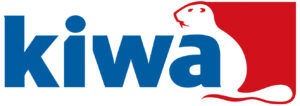5 mins read

By Alison Spencer
Quality Manager
Kiwa Agri Food
Related topics
Food for thought
Access to safe and nutritious food and water is one of the essential requirements for maintaining health and well-being of people around the world. Accredited conformity assessment activities play a pivotal role in improving food safety, by contributing to the prevention and treatment of the adverse effects of unsafe and adulterated food.
UKAS accredits a range of laboratories, certification and inspection bodies, proficiency testing and reference material providers working within the food industry, covering all aspects of the food supply chain from farm to fork. One such body is Kiwa, a world leading Testing, Inspection and Certification (TIC) body, which employs over 4,500 people in more than 40 countries across the globe. In the UK Kiwa operates six separate companies, each specialising in a different TIC activity or industry.
Based in Harrogate, Kiwa Agri Food specialises in product certification for the farm, animal feed and food sectors. Its team of 30 staff and 80 sub-contracted auditors together design, apply, audit and monitor protocols that help retailers, suppliers, producers and farmers build consumer confidence at all stages of the international food supply chain. Kiwa Agri Food’s product certification services have been accredited by UKAS for over 20years, currently under ISO/IEC 17065:2012 — Requirements for bodies certifying products, processes and services.
The principal schemes that Kiwa Agri Foods audits and certifies under this accreditation cover the entire food supply chain, including:
- BRCGS: rated 5* for Food, Agents & Brokers, Storage and Distribution and Packaging.
- Animal Feed Sector: TASCC, FIAS and FEMAS, Assured UK Malt
- Farm Sector: Winterbotham Derby European Farm Partnership Scheme, PAI International Pigs
Being a UKAS accredited body demonstrates that we have the right rigorous processes in place, which are performed by fully qualified and trained auditors.
Developing customer confidence
Emphasising the importance of UKAS accreditation to scheme owners, Alison Spencer, Quality Manager said: “Being a UKAS accredited body demonstrates that we have the right rigorous processes in place, which are performed by fully qualified and trained auditors. Scheme owners know that each audit will be performed both competently and thoroughly and is not just a mere ‘box ticking’ exercise. The UKAS marque shows that we have been independently verified and are regularly checked by an impartial, world renowned accreditation body. That is why many scheme owners, such as BRCGS and AIC stipulate that audit bodies of their schemes must be UKAS accredited.”
Even where accreditation is not specified as a pre-condition of tendering for contracts, it can become a practicality of doing business in other markets, as Alison explains: “All food sectors have different standards to work to, tailored to the specific risks of their product or channel. Ultimately these schemes are all interconnected and united in the aim of giving regulators, retailers and consumers the confidence that a food product is fit for human consumption. Retailers therefore won’t accept products from just any manufacturer without the assurance that it won’t do harm to anyone. UKAS accreditation offers that necessary assurance, so many of our customers choose us because we operate all our audits to the same high standards, whether they fall under the umbrella of our UKAS accreditation or not.”
International assurance
UKAS is a signatory to the International Accreditation Forum’s Multilateral Recognition Agreement (MLA). As a result, UKAS accredited certification activity is recognised as being equivalent to national accreditation arrangements in over 90 different economies across the world. This has many benefits for both certification bodies and their customers that work internationally. Alison comments: “The food supply chain is an interwoven and complex international industry. Being a UKAS accredited certification body gives us opportunities to offer our services globally and allows us access to other markets.”
Alison continues: “Kiwa Agri Food UK is an integral part of the worldwide Kiwa group and we do a lot of partnership work with divisions in areas such as Europe, Australia and Turkey. Many of our international divisions also hold accreditation from their home country’s accreditation body but this may be for different schemes. However, the ‘accredited once, accepted everywhere’ nature of accreditation means that with the correct agreements and training in place, these divisions can achieve certification for their clients under Kiwa Agri Food’s accreditation. In addition to offering an expanded market access for our internationally-facing customers, this delivers economies of scale and brings us closer together as a global organisation.”
Remote benefits
Accreditation is a continuous process that operates on a four yearly cycle of annual assessment visits, with Kiwa Agri Foods’ most recent assessment scheduled for middle of May 2020. As this coincided with the UK government’s restrictions on movement in response to the Covid-19 pandemic, it was one of the earliest to be conducted under UKAS’s remote assessment policy.
Outlining her experiences of the process, Alison concluded: “The main difference between remote assessments and site visits is the preparation of all the relevant documentation is needed beforehand. This allows the bulk of UKAS’s review to take place remotely and not on your time. This means you haven’t got to set aside a block of three days for the assessment, allowing you to better plan your day to day work around the assessment. It also gave us a useful reminder to make sure all our documentation is properly digitised, as that’s much easier than sending mobile phone pictures of printed pages! I would definitely recommend remote assessment to other organisations and would welcome this as an option when the lockdown restrictions are lifted.”